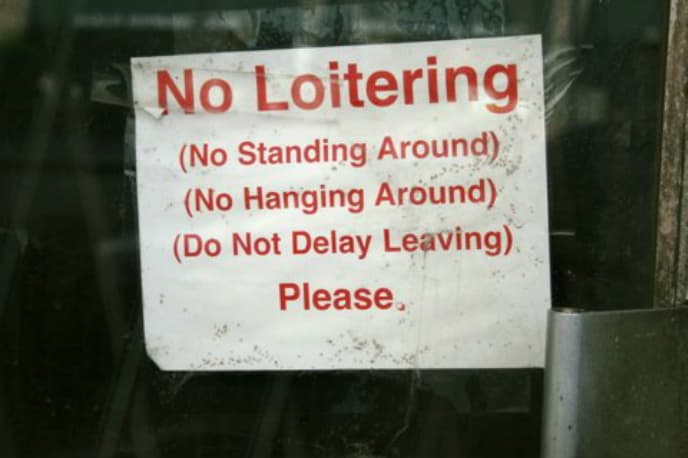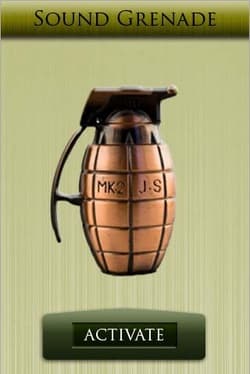For me personally, Japan is the most amazing tourist destination in the world. The country offers many unique experiences, including breathtaking natural scenery, beautiful temples, shrines, and Zen gardens, traditional arts and crafts, sumo tournaments, hot springs, and incredible food. Japan is one of the cleanest and safest countries in the world, the people are friendly throughout, and did I mention that Japan is a shopper’s paradise? If you visit Japan, you will immediately notice a very peculiar thing. It doesn’t matter where you go, you will most likely be surrounded by music, specifically by Western classical music.

Classical music blasting outside a store
Gentle background music is hardly a new concept, and clever people have long used it to soothe anxieties and to encourage consumerism in shops and restaurants. Within the context of Japanese society, it seems that classical music is not only used to promote corporate image and identity. It is also assumed that “classical music has civilizing or ethical properties.”
Franz Liszt: Liebestraum, No. 3 “Nocturne in A-flat Major” (Kathryn Stott, piano)
How we react to classical music and its associations is rooted in a number of things, including cultural background and class. While these associations seem to be primarily positive in Japanese society, Western society has given it a negative spin. How often have we recently been told that classical music is elitist, racist, rich, old, and White? So, in the culture that actually has given birth to classical music, it is no longer seen as a positive moralizing force but has become a weapon for discouraging unwanted elements.

No Loitering
As a scholar writes, “in current Western society the idea that music is a superior, civilizing force cannot and does not account for the effectiveness of classical music in repelling teens. Teens do not change their ways or become more ethical through the magical power of classical music; rather, they take their activities elsewhere. Classical music is therefore successful not in elevating or rehabilitating hooligans but in chasing them away.”
Michael Haydn: Divertimento in C Major, “Adagio” (Alessandro Baccini, cor anglais; Sandro Simoncini, violin; Luca Simoncini, cello; Luca Stevanato, double bass)
Police and community leaders, particularly in North America, increasingly use classical music as a weapon against unwanted segments of society. The city of Los Angeles is currently blasting classical music throughout a subway station to drive away homeless people. The idea that classical music could be used to repel instead of lure was first discovered by a convenience store. “A number of 7-Eleven stores in British Columbia, Canada, were experiencing a loitering problem in 1985. The store management team met with store personnel and psychologists to explore ways to deal with the issue of loitering. One of the ideas was to play easy listening or classical music in the parking lot. The thinking was that this kind of music is not popular with teens and may discourage them from hanging out at the store.”

Sound Grenade
The concept was soon employed by companies and communities with surprisingly positive results. “Figures from January 2005 showed that with the installment of transmitted classic music, robberies in British subways were down by 33 percent, assaults on staff had dropped by 25 percent, and vandalism of trains and stations had decreased by 37 percent.”
Benedetto Marcello: Recorder Sonata in G minor, Op. 2, No. 3 “Allegro” (Collegium Pro Musica)
With classical music selected as the most potent musical program of crime prevention, the specific type or genre was carefully considered. A music critic writes, “The music is generally pre-Romantic, by Baroque or Classical-era composers with a few assertive, late-Romantic exceptions like Mussorgsky and Rachmaninoff.” A musicologist explained the motivation for the selection of classical music, as such: “They’re choosing it because the music is still in some ways exalted. It’s now magical. We’ll spray it around like some kind of incense.”

Homeless people at LA Metro station
The approach seems to be working well in the LA subway system, as homeless people are vacating the stations. Lily E. Hirsch, in her book Music in American crime prevention and punishment, explains, “Loud classical music is working at cross-purposes here, as a way to signal that certain people are wanted and others are unwanted. It’s like a bird marking its territory, where you hear the music and you go, ‘OK, this is not for me. This is for the older money crowd. People are leaving an area that’s playing classical music, not because they don’t like the music but because of the associations.” For Hirsch, this approach is “creating hierarchies of sound by making it clear that an area belongs to certain privileged groups. And you’re not solving the problem, but just pushing the problem to another spot.”
Johann Baptist Vanhal: Symphony in E-flat Major, “Adagio” (Toronto Chamber Orchestra; Kevin Mallon, cond.)
The music selected by the L.A. Metro is a composition by contemporary classical composer Adrián Berenguer. The piece is called “Immaterial,” and it is played on a loop. To tell you the truth, I love classical music but this piece would drive me away very quickly as well. It’s a faux-Vivaldian annoyance that slaps together cliché musical gestures in an utterly meaningless way. Everybody entering the L.A. Metro should be offended because we do not need to be subjected to some incompetent student exercise in imitating a musical style. But then, with the elimination of music from the educational curriculum, who would ever know the difference? I guess it’s working in LA, because the transit authority cites a “75 percent reduction in calls for emergency service, an over 50 percent reduction in vandalism, graffiti, and cleanups, and a nearly 20 percent drop in crime.”
For more of the best in classical music, sign up to our E-Newsletter
Adrián Berenguer: Immaterial





When you ignore the culture, the psychology, the physiology and the heritage, the premise is absurd.
Completely agree otherwise !!!!
I find it disgusting that the music that is supposed to resonate with all humans and people of all classes and is inherently against tribalism because of its undeniably abstract nature is degraded into something that signifies a specific tribe. No wonder they didn’t choose romantic pieces: expressions of individual composers in their utmost subjectivity- inherently above and beyond all cultural boundaries and tribal signifiers. The western culture gave a short chance and horrible lives to the likes of Schubert and Chopin and almost entirely erased the likes of John Field and Alkan from history, even though they were equally genuine and genius. The western culture is infested with tribalism and even two world wars wasn’t enough to teach it that lesson. It never had another Wordsworth or Byron because it never deserved nor wanted to. It turns its own emblems of individuality, subjectivity and unbound humanity into tools for deepening the divisions it’s drunk and truly in love with. Pathetic.